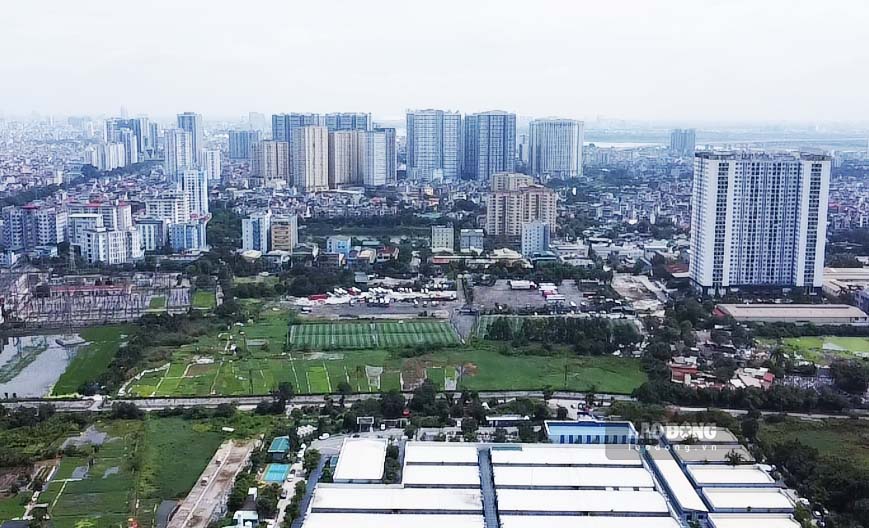Recently, the Hanoi People's Committee issued an Action Plan to deploy tasks and solutions for smart urban development with the goal of building Hanoi into a smart city by 2030, connecting with a network of smart cities and urban areas nationwide, in the region and around the world.
Smart urban technical infrastructure and smart information infrastructure are the foundation for Hanoi to gradually develop into an economic, financial, commercial, cultural, educational, scientific and technological center of the country, deeply integrating internationally, and having a position among smart cities in the region.
Previously, at the end of August 2025, the Northern Smart City project of Hanoi was started with a total investment of 4.2 billion USD, an area of over 270 hectares, expected to be completed in the fourth quarter of 2032.
A modern financial, commercial and service center will be formed here. This is also the first smart city project in Vietnam to use renewable energy and energy-saving technology in the project to achieve carbon neutrality.
According to Architect Phan Dang Son - Chairman of the Vietnam Association of Architects, the smart city of Northern Hanoi will be a model, bringing benefits to the people, creating a green, friendly and convenient living environment for the people.
"In the era of national growth, projects like this will be very important for the directions that the Party and State have outlined, developed and Vietnam will enter the future with a sustainable position," said Architect Phan Dang Son.
In particular, Hanoi's smart urban development plan identifies the goal of taking people as the center. Smart urban development activities aim to improve the quality of life, optimize services and utilities to serve people.

Accordingly, Hanoi focuses on developing smart urban technical infrastructure applications and services, including smart transportation, smart energy, smart public lighting, smart water supply and drainage... All of these areas aim to create a friendly and convenient living environment for people.
In addition, the process of building a smart city in Hanoi will increase investment, complete infrastructure for science, technology, innovation and national digital transformation.
Mr. Luyen Van Phuong - Deputy Director of the Hanoi Department of Construction said that in order to better serve businesses and people, Hanoi has deployed an administrative procedure settlement information system on a unified and synchronous platform in wards and communes in the area.
According to Mr. Phuong, Hanoi will focus on building a smart urban information infrastructure platform, making smart urban technical infrastructure, and important socio-economic infrastructure at a priority level, ensuring safe, reliable, and smooth connections for people and businesses.
Summarizing 7 years of implementing the Vietnam Sustainable Smart City Development Project for the period 2018-2025, with a vision to 2030 (abbreviated as Project 950), Deputy Minister of Construction Nguyen Tuong Van said that developing smart cities is an inevitable trend to build a modern, civilized, sustainable and livable urban area.
"Developing smart cities is not a technology race but must take people as the center. Applying science and technology to urban development must solve pressing problems in society and improve the quality of life for people", Deputy Minister of Construction Nguyen Tuong Van affirmed.











